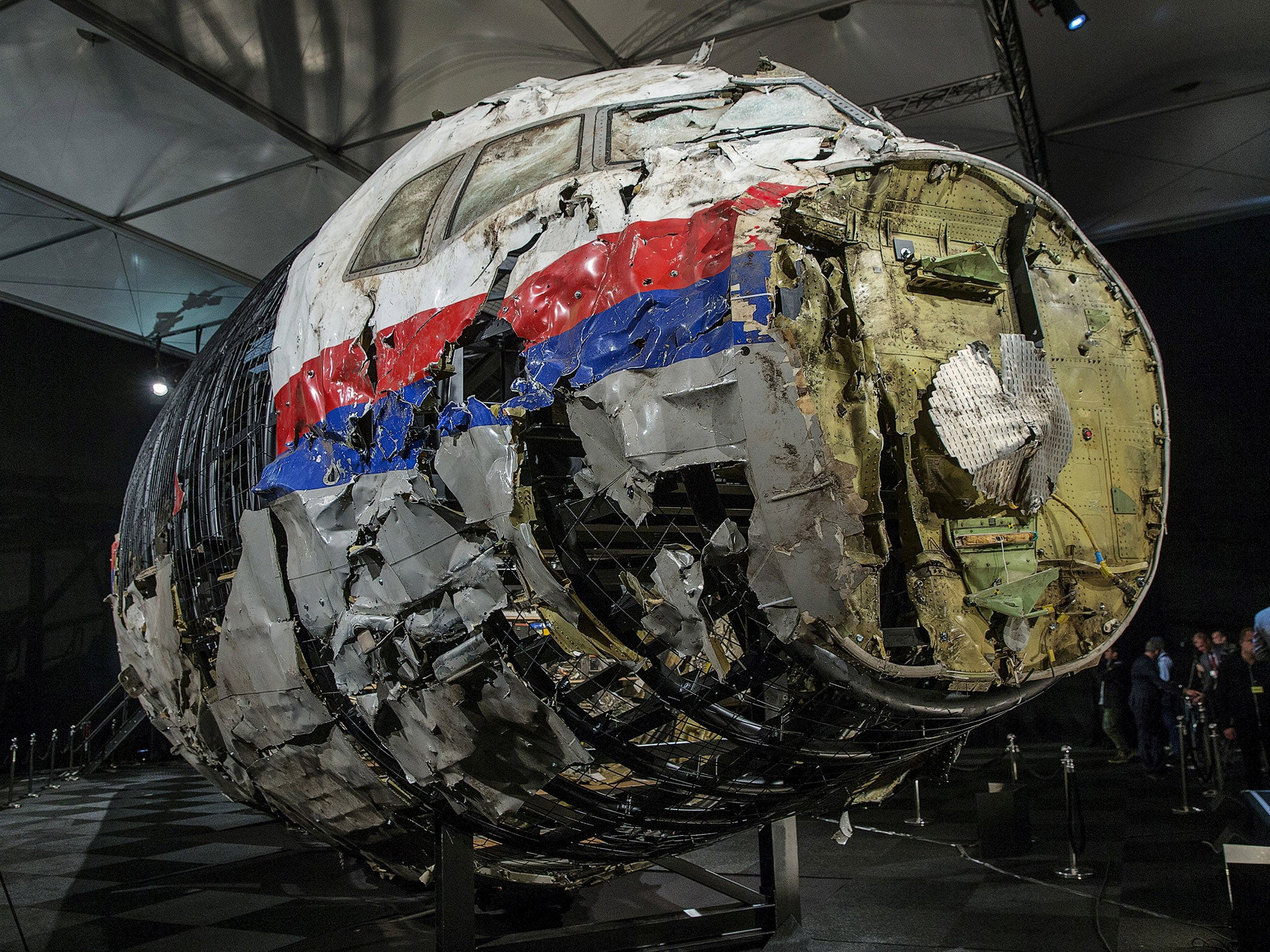‘Increasing aggression’ from Russia, as investigators blame Moscow for shooting down of MH17
Analysis: More sabre rattling likely after investigators say Russia shot down MH17, but little chance of outright conflict

Your support helps us to tell the story
From reproductive rights to climate change to Big Tech, The Independent is on the ground when the story is developing. Whether it's investigating the financials of Elon Musk's pro-Trump PAC or producing our latest documentary, 'The A Word', which shines a light on the American women fighting for reproductive rights, we know how important it is to parse out the facts from the messaging.
At such a critical moment in US history, we need reporters on the ground. Your donation allows us to keep sending journalists to speak to both sides of the story.
The Independent is trusted by Americans across the entire political spectrum. And unlike many other quality news outlets, we choose not to lock Americans out of our reporting and analysis with paywalls. We believe quality journalism should be available to everyone, paid for by those who can afford it.
Your support makes all the difference.The announcement by international investigators that they have uncovered evidence of Kremlin culpability in the shooting down of flight MH17 is a development of significance, and comes at a time when relations between Russia and the West are in one of the worst states since the days of the Cold War.
The Joint Investigation Team which has been examining the downing of the Malaysian Airlines Boeing 777 in Ukraine , July 2014, killing 298 people, hold they have “legal and convincing evidence which will stand in a courtroom”.
Not only had the BUK missile system come from across the Russian border, they say, but it has been narrowed down to the 53rd anti-aircraft brigade based in Kursk.
The inquiry has been carried out by crash experts, police and prosecutors from Ukraine and Malaysia and the Netherlands, where the flight took off.
Wilbert Paulissen, a Dutch member of the investigation team told a press conference “all the vehicles in a convoy carrying the missiles were part of Russian armed forces”.
The Netherlands’ chief prosecutor, Fred Westerbake, stated that there was more incriminating material which would be kept sealed until court hearings were under way.
“We don’t want to tell everything we know because then we are opening our cards to the other side and we don’t want to do that,” he said.
The “other side” in this highly contentious and emotive affair is Vladimir Putin’s government which has repeatedly denied any involvement in the destruction of the plane, and put forward a number of other scenarios, including that the Ukrainians had shot it down and then tried to blame Moscow.
Russia has used its veto at the United Nations to block attempts to set up an international tribunal to try those responsible, which has meant that any court case taking place will be in the Netherlands.
Dutch prosecutors stated two years ago that more than 100 people were under suspicion for direct or indirect involvement in the attack. Mr Westerbeke said the list has now been reduced to a few dozen.
But he declined to disclose names, maintaining that this will hinder investigations. Requests to the Russian authorities for information about the 53rd brigade have been ignored, he said.
The Dutch authorities can, theoretically, ask Moscow to extradite the suspects, a request unlikely to be met, or take out Interpol warrants which could lead to their arrest if and when they travel abroad.
The shooting down of the Malaysian Airlines plane took place during a brutal and prolonged war in Gaza and when international attention drifted after an initial flurry of interest.
But the issue has resurfaced from time to time with the continuing investigation, such as with the announcement from the investigators two years ago that the BUK system had crossed into Ukraine from Russia and then returned after the flight was shot down.
At the time, Kremlin spokesman Dmitry Peskov told journalists: “We cannot accept as the final truth of what they say, I bet you haven’t seen any proof.”
Petro Poroshenko, the Ukrainian president, said in a Facebook post following Thursday’s announcement that he would “spare no effort to ensure that the actions of the Russian Federation as a state which supports terrorism get an appropriate assessment” in the International Court of Justice.
Unilateral Ukrainian action is not going to achieve anything much. Mr Poroshenko can, however, ask the West to take punitive measures against Russia on top of the sanctions already in place over Russian annexation of Crimea and support for Ukrainian separatists.
In addition, the nerve agent attack in Salisbury on Sergei and Yulia Skripal was followed by the UK and its allies expelling more than 100 Russian diplomats, an attack blamed by the West on Russia. Moscow has continued to deny involvement.
UK defence secretary Gavin Williamson warned of continued danger from the Kremlin in a speech at the Royal United Services Institute in London on Thursday.
Pointing out that the Royal Navy had to respond 33 times to Russian vessels approaching UK waters last year, he said: “It goes to show the increasing aggression, the increasing assertiveness of Russia and how we have to give the right support to our Navy in order to give them tools to do the job and keep Britain safe.”
A shooting war is highly unlikely to break out between Russia and Britain or other Western states despite the prevalent sabre rattling. But what is emerging about the shooting down of flight MH17 is another blow to the prospect of relations with Moscow thawing anytime soon.
Join our commenting forum
Join thought-provoking conversations, follow other Independent readers and see their replies
Comments